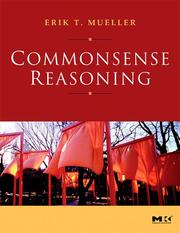| Listing 1 - 3 of 3 |
Sort by
|
Book
ISBN: 0520298403 0520970535 Year: 2018 Publisher: Berkeley, CA : University of California Press,
Abstract | Keywords | Export | Availability | Bookmark
 Loading...
Loading...Choose an application
- Reference Manager
- EndNote
- RefWorks (Direct export to RefWorks)
"In Forging the Ideal Educated Girl, Shenila Khoja-Moolji traces the evolving politics of educational reform and development campaigns in colonial India and Pakistan. She challenges the prevailing common sense associated with calls for women's and girls' education by arguing that such advocacy is not simply about access to education but, more crucially, is concerned with molding girls into the kinds of subjects needed to advance societal projects such as nation building, modernization, and solidifying religious identity. Such concerns are often driven by material and cultural struggles for power. Thus, discourses around education for girls and women are sites for the construction not only of gender identity but also of class, religion, and the nation"--Provided by publisher.
Women --- Muslim women --- Islamic women --- Women, Muslim --- Social conditions. --- Education --- access to education. --- advocacy. --- class relations. --- colonial india. --- common sense. --- development campaigns. --- educated women. --- educational reform. --- evolving politics. --- gender issues. --- india. --- islam. --- nation state. --- nation. --- paid work. --- pakistan. --- patriarchal family. --- producing ideal muslim women. --- religion. --- sociology. --- specific relationships. --- Muslimahs
Book
ISBN: 0128016477 0128014164 9780128016473 9780128014165 Year: 2014 Publisher: Amsterdam
Abstract | Keywords | Export | Availability | Bookmark
 Loading...
Loading...Choose an application
- Reference Manager
- EndNote
- RefWorks (Direct export to RefWorks)
To endow computers with common sense is one of the major long-term goals of artificial intelligence research. One approach to this problem is to formalize commonsense reasoning using mathematical logic. Commonsense Reasoning: An Event Calculus Based Approach is a detailed, high-level reference on logic-based commonsense reasoning. It uses the event calculus, a highly powerful and usable tool for commonsense reasoning, which Erik Mueller demonstrates as the most effective tool for the broadest range of applications. He provides an up-to-date work promoting the use of the event calculus for commonsense world.The Second Edition features new chapters on commonsense reasoning using unstructured information including the Watson system, commonsense reasoning using answer set programming, and techniques for acquisition of commonsense knowledge including crowdsourcing.
Commonsense reasoning --- Artificial intelligence --- Logic, Symbolic and mathematical --- Automation. --- Mathematics. --- Data processing. --- Algebra of logic --- Logic, Universal --- Mathematical logic --- Symbolic and mathematical logic --- Symbolic logic --- Mathematics --- Algebra, Abstract --- Metamathematics --- Set theory --- Syllogism --- AI (Artificial intelligence) --- Artificial thinking --- Electronic brains --- Intellectronics --- Intelligence, Artificial --- Intelligent machines --- Machine intelligence --- Thinking, Artificial --- Bionics --- Cognitive science --- Digital computer simulation --- Electronic data processing --- Logic machines --- Machine theory --- Self-organizing systems --- Simulation methods --- Fifth generation computers --- Neural computers --- Common sense reasoning --- Reasoning

ISBN: 9780123693884 0123693888 9786611050498 1281050490 0080476619 9780080476612 9781281050496 6611050493 Year: 2006 Publisher: Amsterdam Boston Elsevier Morgan Kaufmann
Abstract | Keywords | Export | Availability | Bookmark
 Loading...
Loading...Choose an application
- Reference Manager
- EndNote
- RefWorks (Direct export to RefWorks)
To endow computers with common sense is one of the major long-term goals of Artificial Intelligence research. One approach to this problem is to formalize commonsense reasoning using mathematical logic. Commonsense Reasoning is a detailed, high-level reference on logic-based commonsense reasoning. It uses the event calculus, a highly powerful and usable tool for commonsense reasoning, which Erik T. Mueller demonstrates as the most effective tool for the broadest range of applications. He provides an up-to-date work promoting the use of the event calculus for commonsense reasoning, and bringing
Commonsense reasoning --- Artificial intelligence --- Logic, Symbolic and mathematical --- Automation --- Mathematics --- Data processing --- 681.3*I24 --- 681.3*I28 --- Knowledge representation formalisms and methods: frames and scripts; predicate logic; relation systems; representation languages; procedural and rule-based representations; semantic networks (Artificial intelligence) --- Problem solving, control methods and search: backtracking; dynamic program- ming; graph and tree search strategies; heuristics; plan execution, formationand generation (Artificial intelligence)--See also {681.3*F22} --- 681.3*I24 Knowledge representation formalisms and methods: frames and scripts; predicate logic; relation systems; representation languages; procedural and rule-based representations; semantic networks (Artificial intelligence) --- 681.3*I28 Problem solving, control methods and search: backtracking; dynamic program- ming; graph and tree search strategies; heuristics; plan execution, formationand generation (Artificial intelligence)--See also {681.3*F22} --- Algebra of logic --- Logic, Universal --- Mathematical logic --- Symbolic and mathematical logic --- Symbolic logic --- Algebra, Abstract --- Metamathematics --- Set theory --- Syllogism --- Common sense reasoning --- Reasoning --- AI (Artificial intelligence) --- Artificial thinking --- Electronic brains --- Intellectronics --- Intelligence, Artificial --- Intelligent machines --- Machine intelligence --- Thinking, Artificial --- Bionics --- Cognitive science --- Digital computer simulation --- Electronic data processing --- Logic machines --- Machine theory --- Self-organizing systems --- Simulation methods --- Fifth generation computers --- Neural computers --- Mathematics. --- Data processing. --- Automation.
| Listing 1 - 3 of 3 |
Sort by
|

 Search
Search Feedback
Feedback About UniCat
About UniCat  Help
Help News
News